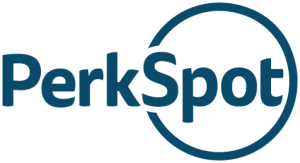
According to SHRM, about 60 percent of workers are now asked to take workplace assessments. These personality tests help boost understanding and improve collaboration among teams. We do the same here at PerkSpot, but a recent colleague brought to my attention that specific personalities don’t always dictate how you work. Using her as an example, Alissa is an introvert through and through. However, when it comes to her work, she enjoys building relationships with new people and engaging with clients over the phone and in person. Being an account manager is not a typical role for most introverts, but Alissa shared how this experience has been challenging and rewarding, while also being a natural fit for her. Perhaps you’ve experienced something similar within your own organization. Maybe an extrovert is great at crunching numbers and heads-down work, while your introverts thrive in sales roles.
Does this mean we are overestimating the power of personality? Should we allow personality tests to dictate how we collaborate on projects? Are they still valuable to the hiring process?
Mixed Reviews
Some of the most common tests include Myers-Briggs Type Indicator, StrengthsFinder and DiSC. HR professionals hold mixed views about the accuracy of personality assessments and how seriously we take the findings. Some of the positive results include gaining a deeper understanding of a candidate’s (or colleague’s) strengths and weaknesses, their communication styles, and how these play into their overall role within their team. While personality tests are great at viewing commonalities among personalities, but remember that these tests should be taken in broad scope, just as you would a horoscope. The flip side is that they often don’t take into consideration motives, values or even working styles. The way a person interacts inside the office could be very different from how they function socially. It will take more than a piece of paper to prove that.
Get Personal with Personality
If you’re on the fence about whether a personality test might be right for your team or as a new addition to your hiring process, consider what other pieces of the puzzle might be missing. Personality tests are great, but they cannot stand alone as a tool for assessing candidates. When hiring, look for candidates who not only fulfill your requirements, but also add value. When assessing a team member, use personality tests alongside other team building exercises to understand how each person functions on an individual level. The key is to get personal with personality and treat each person as an individual, not an answer to a quiz.
Do you currently use personality tests in your hiring process or among your team? Share your experience in the comments.



